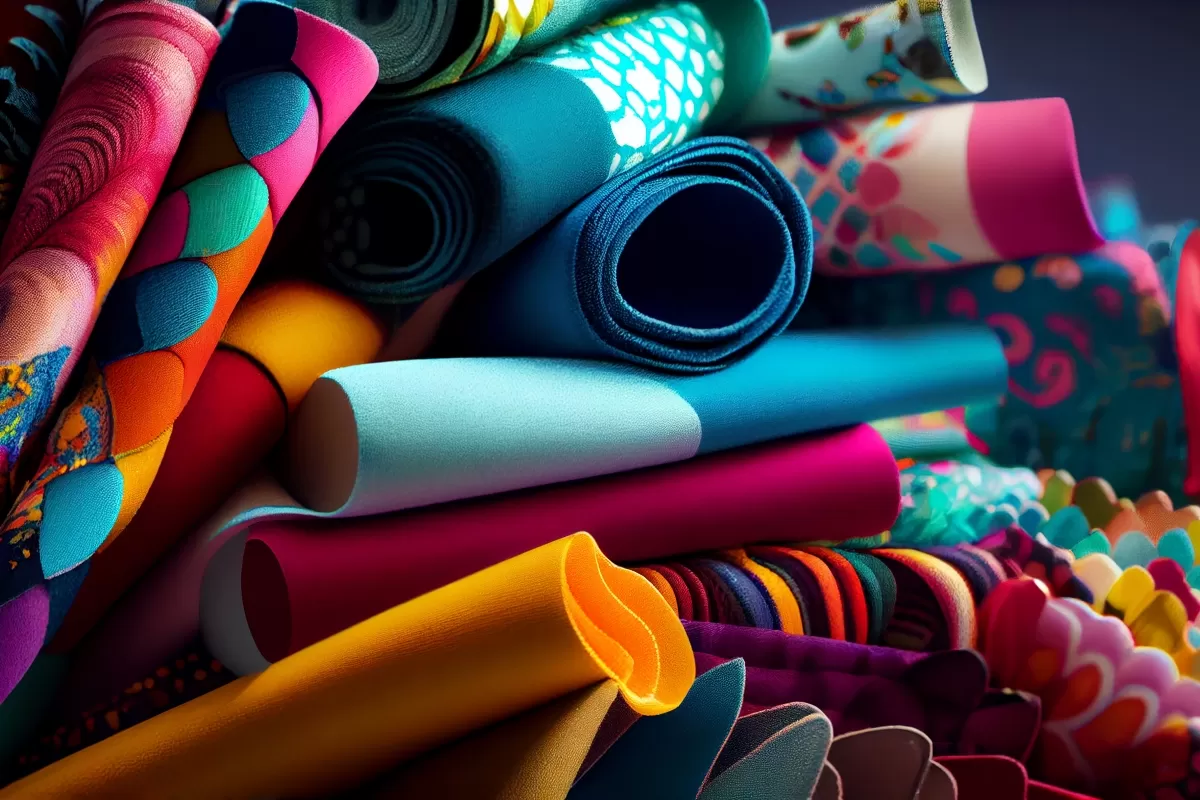04 Jul 2024
Sustainability and innovation: a new direction in textiles
Integrating sustainability throughout the textile supply chain
The intersection of sustainability and innovation in textiles is revolutionizing the industry and transforming it towards greener and more responsible practices. The transition to greater sustainability throughout the industry's supply chain is motivated by growing consumer awareness and the need to reduce the textile industry's environmental impact on the global ecosystem.
The textile and fashion industry must provide solutions to the climate crisis by radically transforming every aspect of the textile production chain. Indeed, addressing the sustainability challenge requires a holistic view that covers the entire life cycle of textile products, from raw material selection to production, use and disposal.
The selection of textile raw materials
Raw material selection is a key issue that is becoming increasingly important for textile companies. The current trend is towards the use of materials that require fewer resources such as water, soil and air, favoring the use of recycled raw materials from post-consumer sources or production waste.
In fact, the production of virgin materials generally requires more natural resources to produce than non-virgin materials, in addition to the emissions and waste generated during the process. For example, it takes a minimum of 7,000 liters to a maximum of 29,000 liters to produce 1 kg of cotton, one of the most widely used materials in the apparel industry.
Alternatives to virgin materials include recycled fibers obtained from post-consumer items. One example is Fulgar's Q-CYCLE® yarn, a polyamide 6.6 yarn in which 100 percent of the raw material used in its production has been replaced by pyrolysis oil derived from discarded or used tires and produced according to mass balance principles.
Sustainability in the textile supply chain
Sustainability in the textile sector goes beyond the choice of raw materials and involves the entire production chain, including processes, traceability and transport. For this reason, the most sustainable companies in the textile sector are moving towards production practices characterized by low energy consumption, through the use of efficient technologies, rationalization of processes and the use of energy from renewable sources.
A strong emphasis is placed on recycling and responsible waste management, implementing integrated systems for collection, recycling of production waste and reuse of materials.
Finally, it is now essential to implement end-product traceability systems to monitor the entire supply chain, ensuring the sustainable sourcing of materials and promoting greater transparency throughout the production process. Fulgar's environmental sustainability policy moves in exactly this direction, committing to reduce environmental impact through the adoption of eco-friendly production processes, recycling of materials and transparency in the production chain. One example is the Q-Nova yarn, whose production is characterized by a mechanical recycling system with a zero-kilometer supply chain, which allows a very low impact in terms of CO2 emissions.
End-of-life sustainability of textile products
Sustainability in textiles extends to the end-of-life of products, with increasing emphasis on reuse, recycling and responsible management of textile waste. Companies are developing programs to recycle used products and improve their environmental management. For example, Fulgar has introduced Amni Soul Eco® fiber, which, at the end of its life cycle in landfills, is able to decompose 10 times faster than other synthetic fibers into biomass and biogas, which can be used as an environmental resource and to generate energy. These and other initiatives help reduce the environmental impact of textile products throughout their lifecycle.
Sustainability must be viewed as an integrated strategy that encompasses the entire textile supply chain to address the climate crisis. Learn more about Fulgar and its innovative yarns that contribute to this important change! Contact the company!





